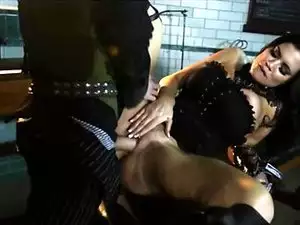Over The Hills And Faraway Book 4: Soldiering OnChapter 9: The ERB free porn video

A few weeks after my unintended appearance at the dogging Oscars with Dilys I was called into the company office. There was a new infantry battalion being formed, and I was one of the 'lucky' ones chosen to make up the numbers.
It is a well-known fact that when MoD call for 'volunteers' for new units the battalions get rid of all those men who pose a bit of a problem to them; not just the stupid, but the barrack room lawyers, the womanisers, the drunks, or those like me, who had been reduced to the ranks and are something of an embarrassment.
The new unit was being formed at York, which was unusual venue for an infantry battalion as the military base there, Imphal Barracks, was an all administrative installation, staffed mainly by civilians carrying out accounting and taxation tasks. There had been no infantry units stationed there since the 1960's, save that of a Territorial Army (TA) company of The West Yorkshire Regiment.
2RGJ packed off about 60 of us 'rejects' to the new unit, the name of which we hadn't yet been told. On arrival we found contingents of men from the other two battalions of the Green Jackets, as well as men from the three battalions of The Light Infantry, a regiment formed in 1968 by amalgamating all the former light infantry regiments. It made sense for men of the two regiments to be combined in any new unit, as we all marched at Light Infantry pace and the arms drill was the same. However, questions, and eyebrows, were raised as to why this experiment was being carried out only on the two light regiments of the army.
Next morning we were assembled on the parade ground – all the civvies who worked on the site had to move their cars; it was the first time the square had seen a battalion of men parading for over 30 years. We were then addressed by a Lt. Colonel Haines, who was to be our new Commanding Officer (CO). He was from one of the light infantry battalions, and seemed a decent enough sort of bloke, although, like the rest of us, he must have been weighed and found wanting.
He told us that the new unit was to be called The Experimental Rifle Battalion, which harked back to the early days of the 95th Rifles. We were issued with new cap badges, and collar dogs – crossed rifles on a bugle horn – and that was that as far as it went in changing uniform. Both the RGJ and the Light Infantry wore rifle green berets, and it was only a matter of exchanging our former cap badge and collar dogs i.e. the badges on the lapels of our No 2 Home Dress tunics, with the new insignia.
The riflemen of the new unit didn't have to learn any new techniques; we used the same infantry weapons and the same battle tactics as the rest of the British Army. The experimental part was in the command and control of the battalion. The ERB comprised of only three rifle companies, rather than of the usual four of an infantry battalion, and the platoons were made up of four sections instead of the usual three. There were also changes to the administration side of things, not that it impacted on our day to day routine as it was only the officers and SNCO's who had to learn new ways of doing things. The CO didn't give any explanation as to why these new formations were being trialled, he just gave us the usual pep talk – duty, diligence, working together as a team, – blah, blah, blah.
We were allocated to our new platoons and sections, and I was assigned as the 2i/c of number four section, six platoon, Bravo Company. The only face I recognised in my new section was Rumpole Stilkins, my former legal advisor at Aldershot.
Rumpole Stilkins was a good example of the type of soldier who had been 'volunteered' for the new unit, well, at least those drawn from the Green Jackets. He was a proficient soldier, knew his job well, and carried out his duties efficiently. He was well educated and intelligent, and probably should have been an officer with those attributes, but his handicap was a big mouth – 'gobby' – as it is called in the army. He never knew when to keep schtum. He was a barrack room lawyer who knew all the rules and regulations, and let those in command know when they had overstepped them. As he had been trained as a lawyer he could argue the hind leg off a donkey, and didn't mind going head to head with authority – not the accomplishments required of a private soldier in the British Army – or indeed in any army.
I'm not saying that all those from the RGJ now serving in ERB were as gobby as he was, but the majority of the 'volunteers' had rubbed up their platoon and /or company commanders the wrong way, so when it came to deciding who was to get detached from the battalion their names would be first in the frame. None of our lot from the Green Jackets were dead legs or layabouts or skivers – OK, so maybe there were a few, but generally the 'volunteers' from the RGJ were good soldiers. I can't say the same for the light infantrymen. Oh sure, they had their barrack room lawyers; good soldiers but gobby, but there were many more dead legs, numpties and slap heads among their contribution than from the RGJ – but then I would say that, wouldn't I?
However, only a week after arriving at York I was appointed acting Corporal of my section, as the former corporal had deserted. He was from the Light Infantry – I rest my case.
Actually he had done me a favour, for the sooner I was appointed a substantive corporal the better. I needed that rank to be allocated to recruiting duties, although with my relationship with Miriam on hold, at least until we had held our discussion, there was no real rush. Once I was a substantive corporal I could also be considered for promotion to Sergeant. I had already passed the SNCO's course and reckoned it shouldn't take too long for me to be back with three stripes, and then be eligible to apply for the staff sergeant course. Once I had qualified in that rank it would confirm my tenure in the army.
I knew it would be several years before I would achieve that target, but I needed the qualification of being eligible for staff sergeant in order to remain in the army after my 38th birthday. I had just under ten years of service before that milestone; plenty of time, given the present intervals between promotion from Corporal to Sergeant and from Sergeant to Staff Sergeant, but it has been known for MoD to move the goal posts when it came to length of service in rank before being considered for promotion to the next higher rank.
The officers of the unit enjoyed different, although just as compelling, reasons as their men when it came for being 'volunteered'. Several were clearly past their sell by date, and one or two were visibly incompetent. My platoon commander was a bit of an enigma when it came to debating his reason to be sent to ERB.
Lieutenant Bernard Westminster was one of the oldest lieutenants I'd ever come across in the army, and yet he was an extremely capable officer. He knew his stuff, and ran the platoon effortlessly and efficiently. He was respected by the men and had a certain charisma. His Achilles Heel was his eccentricity.
At one time the British Army was full of eccentric officers; Black Bob Craufurd, Picton, Chinese Gordon, Baden-Powell, Montgomery, Wingate, Mad Mitch Mitchell, etc. However in the modern army anyone who didn't fit the mould didn't get promoted, and Big Ben Westminster certainly didn't fit the mould – and how.
We called him Big Ben, not just because he was six foot six and built like a second row forward, but because of his voice. He boomed – he never shouted – it was just a loud voice, which carried for miles.
"If he's got a wife I bet she's as deaf as a post from him whispering sweet nothings in her ear." Rumpole remarked.
I didn't know if Big Ben was married or not, but he never lacked for female company. He was a throwback to the Edwardian age, with his mutton chop whiskers, his flowery language – which some times could be quite fruity – and, especially when around females, his old world courtesy and charm. He wore a silk brocaded waistcoat, complete with a fob pocket watch, under his combat jacket, and took snuff, from an antique, silver, snuff box, which he would offer round at an Orders group. I tried some once, and nearly blew my head off with the sneezing. Why would anyone want to stick tobacco dust up their nose?
That is really being eccentric.
It was just as well that Big Ben had soon got to grips with the platoon, as our platoon sergeant, Neddy Claypole, was a complete tosser – and was also from the light infantry I might add. In fact Big Ben ignored him and dealt directly with the four section commanders.
During the months we were at York Big Ben and I struck up a good working relationship. I admit I went out of my way to make myself useful, and get into his good books. I was hoping he would recommend that I get made up to substantive corporal in short order. I had been a section corporal for several years, and says it myself as shouldn't, I was pretty good at it. I made sure that section four of Bravo 6 was the most efficient section in the platoon and the company, and I worked the boys hard to achieve it.
After about six weeks at York I was more or less running the platoon as an acting sergeant, although not with any official sanction, other than Big Ben's. Sergeant Claypole just went through the motions, but Big Ben relied on me to do the job. At first the rest of the platoon were pissed off by what they thought was my brown nosing, but they soon came to see that Claypole was as useful as a chocolate fire guard, and that I had more experience, both in combat, and in running a platoon, than most of the other NCOs in the new battalion. I also had been awarded the Military Medal – which carries quite a lot of prestige among professional soldiers.
Gradually a sort of esprit de corps was built up in the ERB. We all, other than the dead legs, thought ourselves unfairly treated when being posted away from our parent battalions, and, in that particularly British way, we took hold of a derogatory concept and turned it into a badge of honour.
We named ourselves the Erbs – Everyone a Rejected Bastard – which made us doubly keen to be the best. Every competition with other battalions was a must win, at all costs. Our football team kicked the other sides all over the park, and won the Army championship. Our shooting team came second to the Gurkhas at Bisley, but we counted that as a win as Gurkhas are the supreme infantry soldier, and being beaten into second place by them is no defeat. We damn near won the Army rugby championship, but a forward pass by the opposing team –2 Para – was not spotted by the ref, and they scored the winning try.
Our achievements, on the sporting field, and on the training areas – where we took part in brigade exercises and always put on a good show – built up that vital ingredient of an infantry unit: complete trust in your mates.
I tried to install it into my section and 6 platoon, and came up with several ideas which involved the whole platoon taking part. These included a sponsored bungee jump from the top of Clifford Tower, abseiling down the West Tower of York Minster, and taking part in the York half marathon. I believe these activities, and social events such as Quiz nights and pub crawls, improved Bravo 6 as a fighting unit – making us close knit, efficient, and confident.
All work and no play makes Jack, and indeed Dewey, a dull boy, and I didn't intend becoming dull. Even so I also didn't intend entering into any long term sexual relationship in York – I still entertained hopes of getting back with Miriam, and I played it softly softly with her. I would contact her, or my mother, once a week on the telephone. I didn't ask Miriam if she was ready for our discussion, I left it for her to tell me. It had occurred to me that Miriam could be suffering with PTSD, the trauma of her parents' deaths giving her similar symptoms as the trick cyclist had described on the sniper course.
I didn't know if there was any cure, or if there were drugs to alleviate the condition, or if the sufferer just had to work their own way through it, which I assumed Miriam was doing. Anyway I didn't pressurise her in any way. That was fine – me being considerate and caring about my wife's needs – but what about my needs? I wasn't getting any sex at all, and I was really missing those evenings spent bouncing away in Dilys' Fiesta and fanny -- that's a British fanny, which is a completely different piece of kit than an American fanny, although I had sometimes bounced away in that as well.
I was presented with a bit of a dilemma – do I look for a long term, steady relationship, or do I go the Gino Frascetti way of just mindless fucking? Personally I would prefer having a relationship, with all the comforts of home, but realised that it wouldn't be a very good start to getting back with Miriam. There was the danger that if I found another Francine, or Phillipa Goddard, I might not bother getting back with Miriam – and then I would feel guilty if my actions made her PTSD even worse. So after some consideration I decided it was back to the Four F's, and guilt-free fucking.
You see how devious and double dealing I am? Shagging one female regularly would be 'wrong', but regularly shagging different females is OK. I persuaded myself that I was doing this for Miriam's benefit, not mine – what a conniving bastard I really am!
The only thing I had known about York, prior to being posted there with the ERB, was that there was an orgasm inducing set of rail junctions north and south of the city. However, I discovered that York was a really great place, even without those aids to ecstasy. The Romans had built a fort in AD 71 to command a river crossing, and the town had developed along the north bank of the River Ouse. Some of the sewers built by the Romans to take the effluent away from the town still exist today, incorporated into the modern sewage system. I can't imagine anything built by McAlpine's Fusiliers still being in use a thousand years hence.
Rumpole Stilkins, whose given name was Russell, had been born, and had gone to school, in York. He had spent his formative years visiting the Minster and the many museums, besides spending many hours walking along the walls that almost encircle the medieval centre of the city, and what he didn't know about York wasn't worth knowing. He took on a volunteer job as a tour guide, and it became a licence to get off with the tastiest looking tourists totty, and soon he and I had a wonderful system for getting our ends away.
As a bona fide tour guide Russ Stilkins would suss out what totty on his guided tour looked to be likely candidates for infusions of squaddie dick – his and mine. During the tour, which was a walking tour through the city around York Minster, The Shambles, Bootham Bar, and other notable places of interest, he would chat up the most likely pair, then he and I would meet them later for a drink & a meal & a shag.
We would go back to the girls' hotel room for the third element of the evening's entertainment, where, as the prime puller of the females, Russ got to shag his bird in the bed whereas I had to make do with having it off in the toilet /shower room. As Russell said, I had the experience of the 125 Club to call on. We would usually swap partners, and/or venues, after the first round of fucking had been concluded, and then I would get the bed and Russ would learn the joys of shagging in a toilet/shower. At least you could have a shower after working up a fuck-muck sweat, or indeed while still working up a fuck-muck sweat.
- 30.01.2021
- 21
- 0




























































